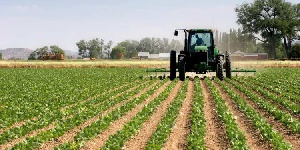 There have been calls for a strategic approach in Agric in Ghana
There have been calls for a strategic approach in Agric in Ghana
Government statistician Professor Samuel Kobina Annim says the 2017/2018 census on agriculture has revealed that agricultural activities in the country remain rural and rudimentary.
He alluded to the fact the absence of and low levels of education among agricultural holders is adversely affecting innovation and modernization.
“Now that we have found out that four-fifth of people in agric do not have education, we should think about how we can structure some educational packages for those in the agricultural sector,” Professor Annim said.
The 2017/2018 agricultural census is the fourth to be conducted in the country. The first was in 1950. The second census was conducted in 1970, 20 years after the initial agric census and the third occurred 15 years later in 1985. All previous agric censuses excluded agricultural institutions.
But with a 33-year gap to fill, the 2017/2018 exercise depended heavily on the use of computer-assisted personal interview techniques to collect data from households and institutions engaged in agricultural activities nationwide.
The report indicated that a total of four million, eight hundred and sixty-four thousand, two hundred and seventy-six households were identified, with two million, five hundred and eighty-five thousand, five hundred and thirty-one being agricultural households.
A total of three million, thirty-seven thousand, three hundred and eighty-one persons who were 15 years or older are engaged in agriculture. 65.8 percent are males and 76.6 percent are in rural areas.
The census results also indicated that about 87 percent of agricultural holders have either basic education or no formal education. Majority of females comprising 52.6 percent have never attended school.
Professor Annim also appealed for a more strategic approach to whip up the interest of the youth in agricultural activities.
He said “the other perspective which we think we should look at, is the whole educational system, how it prepares the youth to go into agric, because one of the findings from what we did showed about 80 percent of agric holders do not have education or at best, have basic education. So those who are in agric; by implication the youth that we are concerned about, most of them do not have what it takes to appreciate the technology required to drive a productive agricultural sector.”












